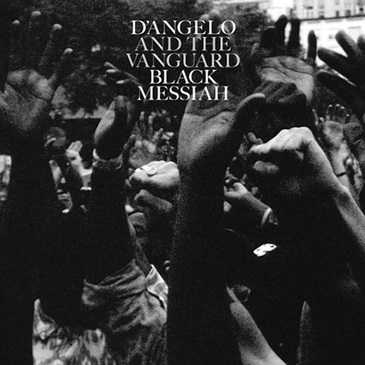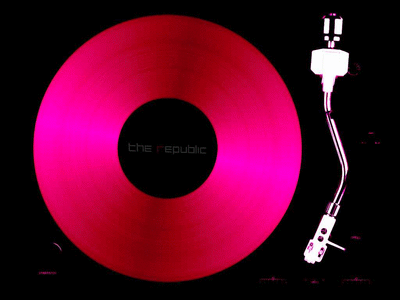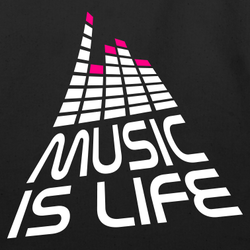
Likes: The Charade, Sugah Daddy, Really Love, Another Life
Dislikes: Ain’t That Easy
Overall: Still funky, but muffled and not the sexy follow-up I was hoping for
Someone check the air and see if pigs are flying. Who knew that D’Angelo would beat his fellow recluse, rapper/singer Lauryn Hill (who comes out of her cave more often for live performances), in dropping an album? If you don’t know who D’Angelo is, he’s worth doing some homework on. In short, he’s a critically-approbated neo-soul pioneer who was quickly dubbed the Marvin Gaye of his age. Reported legal troubles, writer’s block, personal strife and discomfort with his sex-symbol image all allegedly led to long breaks between records and standing back from the press. After the Grammy winning Voodoo in 2000, he began tinkering on new material in 2006, but nothing came of it…until now. Black Messiah comes with Kendra Foster and Q-Tip in the writing credits and Questlove, Pino Palladino and James Gadson bidding on the music. In the album’s lyric booklet, D’Angelo, whose birth name is Michael Archer, assures the title doesn’t indicate a religious theme or a Kanye West-like proclamation of godliness, but encouragement to be proactive citizens in the face of calamity and injustice. Some songs are more obviously political than others, like “The Charade” and “Till It’s Done (Tutu),” which focus on the black experience. “Charade” features a very powerful line that’s presumptively a nod to the civil rights movement of 1960’s: “All we wanted was a chance to talk, but instead we got outlined in chalk.” “Tutu” may be in reference to South African social activist Desmond Tutu, where D’Angelo discusses inefficient protest and how systematic racism has led to difficulty in identity formation, apathy and dissention. A few tracks seem to have double meanings; “Back to the Future” sounds like it could be about a change in relationship dynamics, but in the 2nd verse, he addresses his grievances and concerns with coming back to the industry: “I been wondering if I can ever again, so if you're wondering about the shape I'm in, I hope it ain't my abdomen that you're referring to; this what I want you to listen to.” D’Angelo’s most popular song and video was the 2000 bedroom-anthem “Untitled (How Does it Feel?),” where the camera strategically panned his bare torso, as he crooned and acted as if he was receiving fellatio. Afterward, he quite naturally was coveted by women everywhere and felt his new heartthrob status distracted from his art. When he gained weight and lost his chiseled physique, it unfortunately made news.
Now that I’ve mentioned his older music, I’m warning you now that Messiah will only lightly satisfy your craving for D’Angelo nostalgia. Vixen story “Sugah Daddy” is the most redolent. “The Door” is of a different throwback, somewhat reminding me of Raphael Saadiq’s “Still Ray.” The live instrumentation and his just right sweet and sour recipe of rugged and warm vocals and simple, yet poetic and mischievous writing is still present. I both side-eyed and smiled at his sexual innuendos; I found the mentioning of “queefing” (you’ll have to look up what the slang term means if it’s unfamiliar) on “Sugah” unpleasant and unnecessary. The figurative use of “nectar” to bodily fluids on the tranquil “Really Love” (that I wish was less repetitive) was more graceful and witty. Though there’s polysemy and varying topics (ex. politics, love and woes of the spirit), the album content doesn’t seem confused or jumbled. What is jumbled, however, is the vocal and music production, which is very muffled and muddy. Without sheerness, it’s harder to comprehend and fully appreciate the beauty of the instruments and D’Angelo’s reputed harmonies. Just as reputed is his diction, which has worsened. He makes Ariana Grande sound like a proficient enunciator. This doesn’t help with the garbled sound and defeats the purpose of having a message. There’s such interesting mismatched sport between the music and lyrics (ex. the romantic “Betray My Heart” has a skippy rhythm instead of a sweet, slow one) and a lovely dance between jazz, southern blues, rock, funk and R&B (loved the Spanish guitars and violins on “Really,” by the way). If only it was heard more clearly.
It would probably be less disappointing that Black Messiah isn’t a sequel to Brown Sugar or Voodoo if D’Angelo wasn’t M.I.A. for so long and the murky production didn’t keep me from enjoying the record’s gifts. Nevertheless, I’m glad he’s back and still has a lot of the things we loved him for. Welcome back, Kotter. Long live soul music.


 RSS Feed
RSS Feed